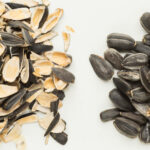
Overview
Sweet potatoes are among the most nutrient-dense and versatile vegetables available worldwide. With their rich content of vitamins, minerals, antioxidants, and fiber, they are a dietary powerhouse that offers numerous health benefits. Available in vibrant colors such as orange, purple, and white, sweet potatoes are easy to prepare and add to any meal. Let’s delve into the incredible health benefits of sweet potatoes and discover why they deserve a spot in your diet
Promote Gut Health
Sweet potatoes are a rich source of fiber and antioxidants that support gut health.
- Fiber Content: Sweet potatoes contain both soluble and insoluble fiber. Soluble fiber absorbs water and softens stool, while insoluble fiber adds bulk and supports regular bowel movements.
- Gut-Friendly Antioxidants: The antioxidants in purple sweet potatoes encourage the growth of beneficial gut bacteria like Bifidobacterium and Lactobacillus, which improve digestion and reduce the risk of irritable bowel syndrome (IBS) and infectious diarrhea.
Short-Chain Fatty Acids (SCFAs): When fiber ferments in the colon, it produces SCFAs, which nourish intestinal cells, promote gut health, and strengthen the gut lining
Packed with Essential Nutrients
A medium-sized sweet potato is a nutritional treasure trove that provides:
- Vitamin A: Over 100% of the daily requirement, essential for vision, immune function, and organ health.
- Other Nutrients: Includes vitamin C, B vitamins, calcium, magnesium, potassium, and iron.
- Carotenoids: Natural compounds that give sweet potatoes their vibrant colors and act as antioxidants to protect cells from damage
Related : Ways to Find Relief From Eye Allergies
Cancer-Fighting Properties
Sweet potatoes contain antioxidants that may protect against cancer.
- Anthocyanins: Found in purple sweet potatoes, anthocyanins have been shown to inhibit the growth of cancer cells in the bladder, colon, stomach, and breast during laboratory studies.
- Peel Benefits: Research indicates that the peels of sweet potatoes also contain cancer-fighting properties, although further studies are needed to confirm these effects in humans.
Beta Carotene: This powerful antioxidant reduces free radical damage, potentially lowering the risk of certain cancers like lung and prostate cancer.
Support Healthy Vision
The high beta carotene content in sweet potatoes significantly benefits eye health.
- Vitamin A Conversion: Beta carotene is converted into vitamin A, which is vital for maintaining the light-detecting receptors in the eyes.
- Blindness Prevention: Consuming beta carotene-rich foods like sweet potatoes can help prevent xerophthalmia, a severe vitamin A deficiency that causes blindness in developing countries.
Anthocyanins for Vision: Purple sweet potatoes contain anthocyanins, which protect retinal cells and reduce the risk of vision-related disorders
Boost Brain Health
Sweet potatoes, particularly the purple variety, support brain health.
Memory Enhancement: Animal studies suggest that the anthocyanins in sweet potatoes may improve memory and spatial learning by reducing inflammation and oxidative damage.
Dementia Prevention: Diets rich in fruits, vegetables, and antioxidants, like sweet potatoes, are linked to a reduced risk of cognitive decline and dementia
Related : What Happens When You Quit Caffeine
Anti-Inflammatory Benefits
Sweet potatoes are rich in compounds that combat chronic inflammation.
Antioxidants: These protect the body from inflammation linked to diseases such as arthritis, diabetes, heart disease, and inflammatory bowel diseases (IBD).
Reduced Risk of Chronic Diseases: The anti-inflammatory properties of sweet potatoes may lower the risk of conditions like high blood pressure, Crohn’s disease, and ulcerative colitis.
Strengthen the Immune System
Sweet potatoes are an excellent source of beta carotene, which converts into vitamin A to support immunity.
- Immune Support: Vitamin A enhances the function of mucous membranes in the gut, forming a barrier against harmful pathogens.
Deficiency Prevention: Regular consumption of sweet potatoes can prevent vitamin A deficiency, which is associated with reduced immunity and increased susceptibility to infections.
Aid in Weight Loss
Sweet potatoes are a great food choice for weight management.
High Fiber Content: The fiber in sweet potatoes promotes feelings of fullness, helping to control appetite and reduce calorie intake.
Low Glycemic Index: Boiled sweet potatoes have a low glycemic index, meaning they release energy slowly and prevent blood sugar spikes, making them ideal for weight loss diets.
Promote Heart Health
Sweet potatoes contribute to heart health in several ways.
Potassium: This mineral helps regulate blood pressure by balancing sodium levels, reducing hypertension.
Lower Cholesterol: Sweet potatoes can lower LDL (“bad”) cholesterol levels, decreasing the risk of heart disease
Enhance Skin and Hair Health
The nutrients in sweet potatoes benefit both skin and hair.
- Vitamin C: Promotes collagen production, reducing signs of aging and keeping skin firm and radiant.
- Vitamin A: Prevents hair fall, reduces dandruff, and protects the skin from sun damage
Related : Proven Ways to Lose Weight Without Diet or Exercise
Nutritious Food for Pregnancy
Sweet potatoes are a recommended food for pregnant women due to their nutrient density.
- Beta Carotene: Essential for fetal development, particularly in the third trimester.
- Folic Acid: Supports the healthy growth of the baby and reduces the risk of birth defects.
How to Include Sweet Potatoes in Your Diet
Sweet potatoes are incredibly versatile and can be prepared in numerous ways:
- Baked: A healthy and satisfying snack or side dish.
- Mashed: Creamy and delicious, paired with minimal fat for a low-calorie option.
- Sweet Potato Fries or Chips: A healthier alternative to regular fries.
- Sweet Potato Hash: Perfect for breakfast or brunch, sautéed with onions and peppers.
- Desserts: Sweet potato puree can be used in pies, muffins, or cakes for added moisture and flavor.
- Cooking Tip: Pair sweet potatoes with healthy fats like olive oil or avocado to enhance beta carotene absorption.
Storage Tips
- Keep Fresh: Store sweet potatoes in a cool, dry, and well-ventilated area for up to two weeks.
Avoid Refrigeration: Refrigerating raw sweet potatoes can alter their texture and flavor. Only refrigerate them after cooking
Related : What Happens if You Drink Too Much Water?
The Takeaway
Sweet potatoes are a versatile, nutrient-rich superfood that provides countless health benefits. From promoting gut and heart health to supporting vision and immunity, these vibrant root vegetables deserve a place in your regular diet. Whether baked, roasted, or mashed, sweet potatoes offer a delicious and nutritious way to boost your overall well-being. Make them a staple in your kitchen and reap their incredible health rewards
Frequently Asked Questions
- Are sweet potatoes healthier than regular potatoes?
Yes, sweet potatoes are generally considered healthier than regular potatoes due to their higher levels of beta-carotene (a powerful antioxidant) and vitamin A. Additionally, sweet potatoes have a lower glycemic index, which means they are less likely to cause blood sugar spikes.
- Can people with diabetes eat sweet potatoes?
Yes, sweet potatoes can be a part of a diabetes-friendly diet. Their high fiber content and low glycemic index help regulate blood sugar levels. However, portion control is important, and it’s best to consume them in moderation.
- What are the potential risks of eating sweet potatoes?
While sweet potatoes are highly nutritious, excessive consumption may lead to:
- Vitamin A Toxicity: Overeating can cause an excessive buildup of vitamin A, leading to symptoms like nausea or headaches, especially if combined with supplements.
- Kidney Stones: Sweet potatoes contain oxalates, which may contribute to kidney stone formation in susceptible individuals.
- Digestive Issues: High fiber intake from sweet potatoes might cause bloating or gas in some people if eaten in large quantities











